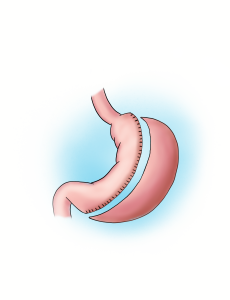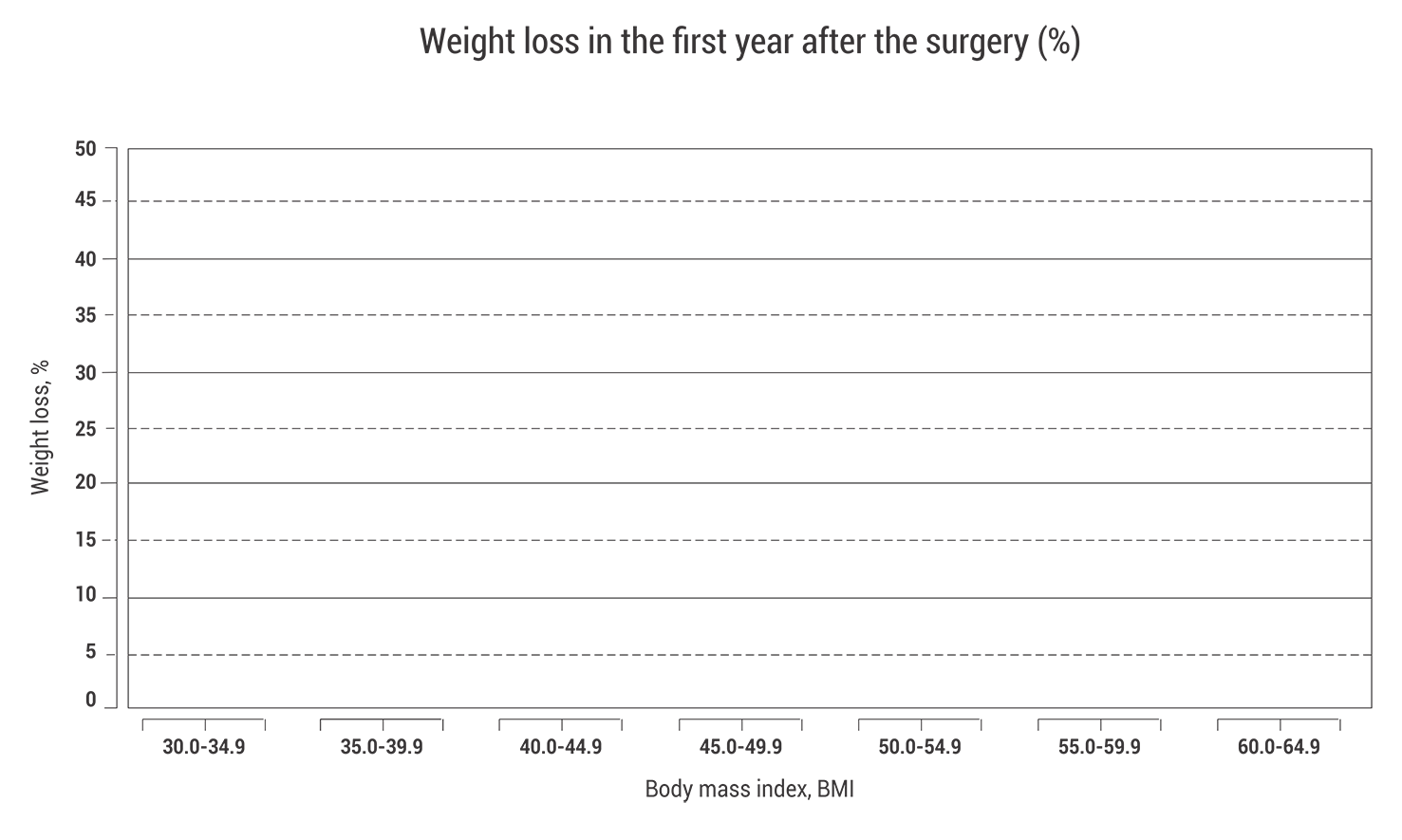Gastric Sleeve

Prior to 2003, the surgery was part of a large and complex bariatric operation. When the complicated operation was divided into two stages, it was concluded that it was enough to reduce the volume of the stomach. During a vertical gastrectomy, most of the stomach (about 80% of its volume) is removed, thereby simultaneously removing a large portion of the gastric endocrine cells that produce the hunger hormone ghrelin. The volume of the young stomach is about 300 ml. The stomach fills faster and empties into the duodenum. Food reaches the small intestine faster, which in turn stimulates satiety hormones. As a result, the feeling of hunger is permanently reduced and the feeling of satiety occurs faster. Compared to gastric bypass, this operation is technically simpler, as there is no need to make additional connections between the intestine and the stomach. Fewer operations on the gastrointestinal tract means fewer early complications. In the first postoperative days, the stomach adapts to its new shape and patients tend to feel discomfort in connection with nausea, less often – vomiting. It goes away in the following days after surgery. In rare cases, there may be 3-5 days of minimal discomfort.
Benefits
- On average, the operation takes less time than Gastric Bypass, therefore shorter time under general anesthesia
- More suitable for people with mild obesity (I and II) or with extreme obesity, or for some health problems that do not allow Gastric Bypass surgery
- The patient feels less hungry and quickly feels full – this reduces the desire to eat often
- Diseases related to obesity decrease or disappear – type 2 diabetes, sleep apnea, depression, arterial hypertension, joint and back pain due to osteoarthritis, polycystic ovary syndrome, which is one of the causes of infertility
- Cholesterol levels decrease, blood pressure and glycemic levels normalize, thereby reducing the risk of stroke, myocardial infarction and prolonging survival
- Feeling improves, healthy self-confidence develops
- No restrictions on physical, professional and hobby activities
- Weight loss process is similar as in case of gastric bypass surgery, however, if patient is extremely overweight and has a high BMI, the effectiveness reduces.
Recommendations
- Consultation, supervision and support of a nutrition specialist is needed
- The support of a psychologist/psychotherapist is recommended
- After surgery, vitamin D and calcium should be taken continuously, in some cases proton pump inhibitors or acid-reducing medications, such as omeprazole
- Blood tests should be done for possible vitamin deficiency
- To avoid possible post-operative complications, follow the specialist’s instructions on the desired lifestyle
- A liquid food diet should be followed for three weeks after the operation
Taking into account the patient’s weight, state of health and the results of pre-operative examinations, the surgeon can recommend a certain type of surgery. The final decision is made by the patient together with the surgeon.

